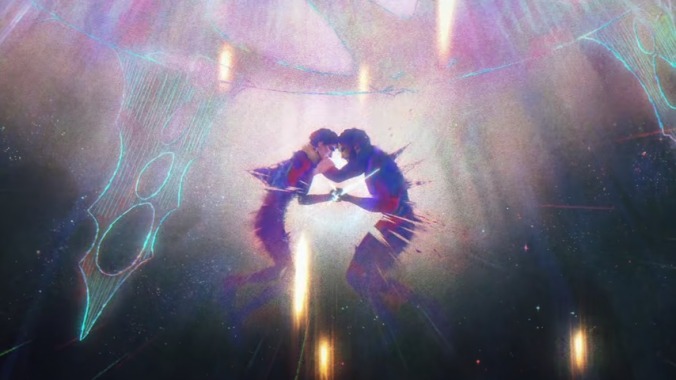With Act 3, Arcane Came to An Emotional, Fittingly Imperfect End

After a three-year wait since Arcane proved one of the biggest surprises of 2021, the series’ second and final season came and went in a flash. Once again, Fortiche studio demonstrated their visual mastery with staggering cuts that switched art styles and forms to match each narrative turn, as the series delivered the crushing tragedy and complex characters it’s known for. But while the first six episodes were excellent in a vacuum, considering how much still needed to be resolved, it was hard to imagine how the show’s final act could possibly tie up every narrative loose end this weekend. The answer is that it couldn’t really, but that didn’t stop this denouement from ripping our hearts out one last time.
Compared to the series’ initial run, the main problem with Season 2 is that it feels a bit unfocused. While the first three-quarters of the story was mostly dedicated to the class struggle between Zaun and Piltover and how this affected the characters involved, the last few episodes rapidly pivoted towards magical, world-ending circumstances. In Episode 6, “The Message Hidden Within the Pattern,” Viktor furthered his transformation into a messianic figure that offered an alternate solution to these ongoing political woes; join his cult, and you’ll become part of a nice, cozy hivemind! While it was heavily foreshadowed from the beginning that Jayce and Viktor’s Hextech would have dangerous consequences, this was mainly presented in the traditional way that technology meant for good is appropriated towards harm: Piltover used it to make weapons.
After these allusions, things took a turn when Episode 7 centered on an apocalyptic future brought on by Hextech and the power of the arcane. Here, Jayce witnessed that if Viktor completed his plan, it would convert every denizen of Piltover and Zaun into an unthinking puppet. Basically, while the majority of the series was about inequality and political oppression, it decisively shifted toward a cataclysmic Big Fantasy Threat in Act 3 that at least initially seemed much less interesting than what came before. It was an inelegant change that didn’t have enough runtime to come across as convincing as it could have. Sure, the threat of Hextech has always been there, but this alteration in priorities left some characters relatively sidelined in this back stretch, including Vi, Jinx, and Cait, the most central characters to the rest of the show.
The situation is somewhat reminiscent of Game of Thrones’ unsuccessful late-stage swerve, where a narrative that was at its best rendering political machinations and decidedly human drama became entirely about fighting evil blue guys. Again, in both cases, there was plenty of foreshadowing from the start and allusions throughout that this is where things would go. But despite this, both series were best off when they balanced grounded moments with fantasy flourishes instead of entirely skewing towards the latter. For instance, the first 15 episodes or so of Arcane posed all sorts of interesting questions. Will Zaun ever be free? Can people like Jinx earn forgiveness, and can people like Cait find it in themselves to grant it? Will the writers let the yearning lesbians kiss or acknowledge that Jayce and Viktor are totally boyfriends? While all of these inquiries were answered in some way or another, many were detrimentally put on the back burner.
Still, all this said, Arcane’s final stretch is dramatically better than what we saw with Westeros’ calamitous fall. For starters, while the finale, “The Dirt Under Your Nails,” may be one long extended fight scene about combatting the previously mentioned Big Fantasy Threat, it helps that, like the rest of the series, it’s goddamn gorgeous. Despite the large-scale chaos of this battle between Ambessa’s Noxians and the combined forces of Piltover and Zaun, there is clarity to the carnage as we cut between our protagonists. The star of this extended brawl is undoubtedly Ambessa herself, who furthered her legacy as an unforgivably badass villain as she sliced through soldiers and deflected magic bullets with ease.
And while the hectic last three episodes pivoted towards a grandiose threat that didn’t have enough space to develop, there was just enough room to resolve most of these long-running character arcs with a mixture of tragedy and catharsis, even if many of them could have landed more resoundingly with additional time. Cait and Vi’s longstanding situationship finally turned into something more in what was probably the most unambiguously cathartic turn. While Cait never really gets the chance to fully redeem herself after becoming an oppressive despot, her fight against Ambessa, the person who manipulated her into committing these acts, is a stunner sequence that at least partially gets us there. Similarly, although it feels weird that Vi is somewhat sidelined in the climactic battle, this fight allows her to fully reconcile with her sister, as represented by their matching haircuts as they face off against their zombie dad (which is admittedly a beat they hit a few too many times).
-

-

-

-

-

-

-

-

-

-

-

-

-

-

-

-

-

-

-

-

-

-

-

-

-

-

-

-

-

-

-

-

-

-

-

-

-

-

-

-








































